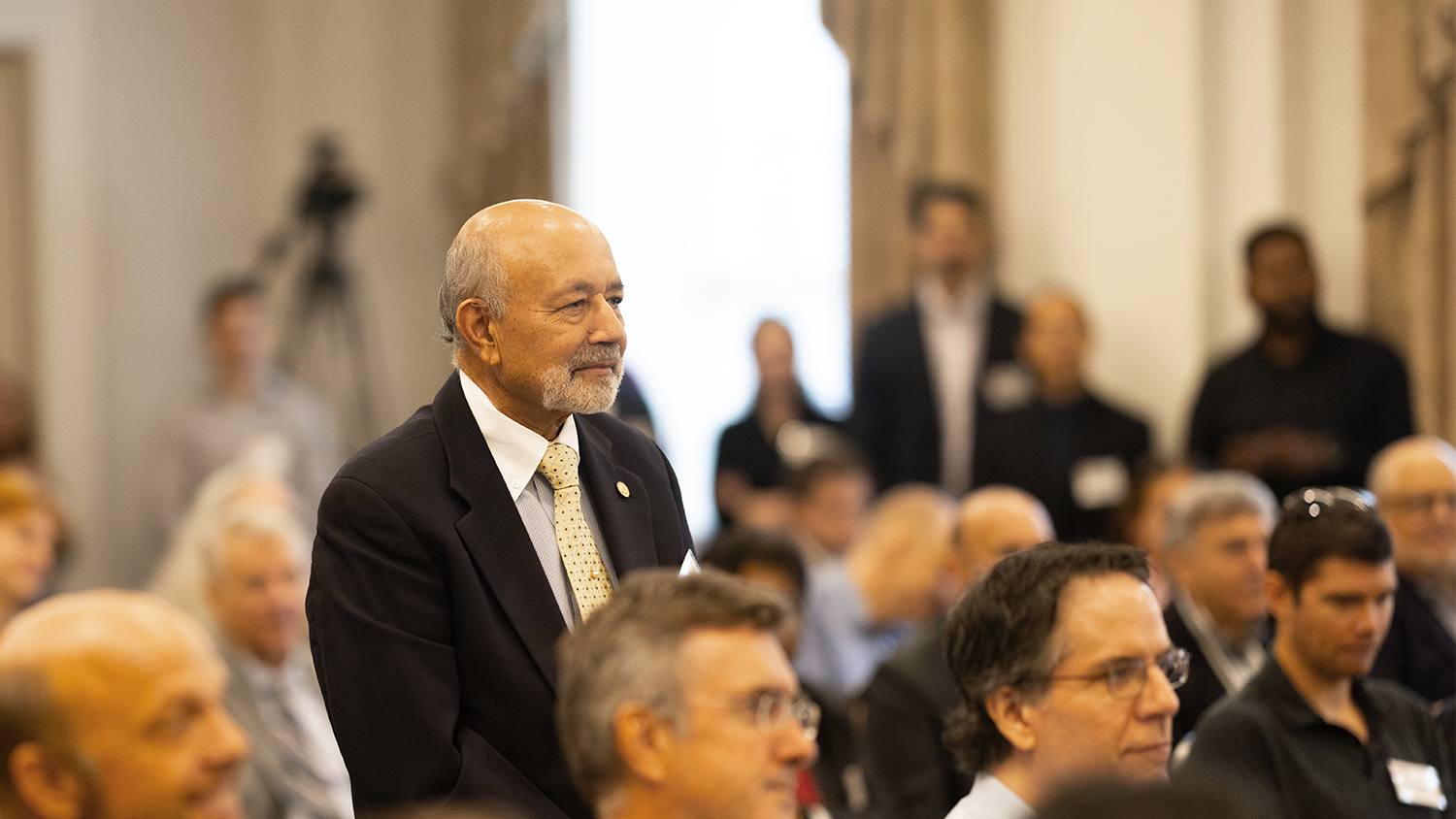Baliga wins Millennium Technology Prize

B. Jayant Baliga, “the person with the largest negative carbon footprint in the world,” was awarded the Millennium Technology Prize in October 2024 for the invention, development and commercialization of the insulated gate bipolar transistor (IGBT), an energy-saving semiconductor switch he invented in 1980 while a researcher at General Electric.
The Millennium Technology Prize, awarded in Finland, is the most prestigious international award focused on recognizing technological innovation. It comes with a €1 million award.
Baliga is the Progress Energy Distinguished University Professor Emeritus of Electrical and Computer Engineering at NC State. Finland’s President Alexander Stubb presented him the prize on Oct. 30, during a ceremony that also celebrated the 20th anniversary of the award.
The IGBT changed the world. It reduced global carbon dioxide emissions by more than 82 gigatons over the past 30 years — the equivalent of offsetting carbon dioxide emissions from all human activity for three years. It improved energy efficiency by 40% in everyday products including cars, refrigerators and lightbulbs, and is a critical component of modern compact cardiac defibrillators.
“It is very exciting to have been selected for this great honor,” Baliga said. “I am particularly happy that the Millennium Technology Prize will bring attention to my innovation, as the IGBT is an embedded technology that is hidden from the eyes of society. It has enabled a vast array of products that have improved the comfort, convenience and health of billions of people around the world while reducing carbon dioxide emissions to mitigate global warming. Informing the public of this impactful innovation will illustrate the betterment of humanity by modern technology.”
Baliga’s arrival at NC State helped position the university to become the leader it is today in semiconductor research and development. Most recently, the university was named the lead on the Commercial Leap Ahead for Wide Bandgap Semiconductors (CLAWS) hub, one of eight Microelectronics Commons regional innovation hubs established by the Creating Helpful Incentives to Produce Semiconductors (CHIPS) and Science Act.
In September, the White House and Department of Defense announced the first year of funding, totaling $19 million, for four additional projects managed by CLAWS.
- Categories:


